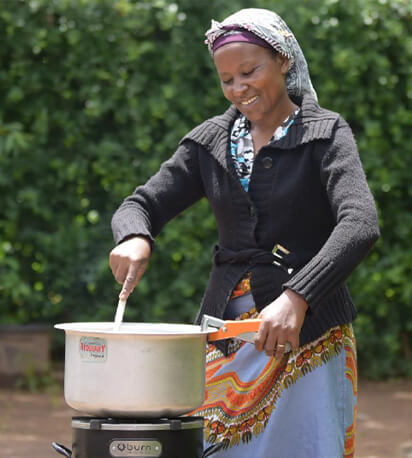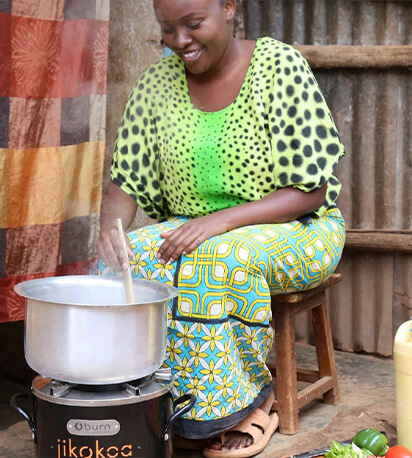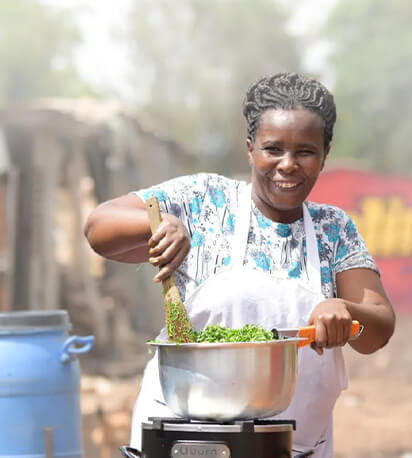Efficient kitchen stove distribution project in Kenya
CONTEXT
The Burn Stoves project aims to distribute efficient cooking stoves to rural households in Kenya, thereby providing benefits to the environment and improving the health and quality of life of the people involved. The project is being rolled out in all 47 counties of Kenya and distributes the “Jikokoa” stove, an efficient biomass model designed to reduce fuel consumption and improve indoor air quality in homes. The project is having a significant impact on the lives of some of the world's most vulnerable people. In a Country where more than 90 percent of the population still relies on local biomass for cooking (wood or charcoal), deforestation rates are alarmingly high, especially in regions already facing arid conditions. Local coal production is unsustainable and expensive. In addition to the environmental problems, there are social consequences as well: wood or charcoal is burned with an open flame or in traditional stoves in a very inefficient way, so large quantities are needed, resulting in significant expenses for households, three-quarters of which live below the poverty line. In addition, according to a study conducted by the CleanCooking Alliance, excessive smoke from these old stoves poses serious health risks, contributing to more than 3 million premature deaths each year.
Project name: BURN STOVES PROJECT IN KENYA
SUSTAINABLE DEVELOPMENT GOALS


DESCRIPTION
In this context, the Burn Stoves project provides a solution by introducing a very fuel-efficient biomass stove. By adopting this stove, households can reduce the amount of fuel by 64 percent, effectively slowing deforestation and saving money that is often invested in their children's education. The efficient combustion inside the stove reduces indoor air pollution by 65 percent with great health benefits. These benefits, combined with the savings in time and fuel expenses required to procure fuel, lead to an overall improvement in quality of life, as well as preserving the country's forests. And in particular, they help reduce gender inequality because it is usually women who are responsible for cooking and fuel procurement. Through this project, an environmentally and socially sustainable solution is provided by offering affected families the opportunity for a better and healthier future.


BENEFITS
- improvement in air quality (particularly that inside homes), resulting in a reduction in respiratory diseases,
- reduction in consumption, cooking time and fuel supply costs reduction of greenhouse gas emissions as a consequence of reduced consumption,
- reduction of the burden of firewood collection on women and girls, giving them time to engage in other important initiatives such as education,
- reduction of deforestation and pressure on local forest ecosystems,
- new job opportunities (stove production, distribution and sales are all local activities).


IMPACTS
Monitoring period from 14/03/2023 to 12/03/2024
- 344,977: stoves distributed, for at least as many households:
- 308,406 tons: tons of wood saved
- 99.05%: percentage of households reporting an improvement in perceived indoor air quality
- 408,170 tons CO2e: emissions avoided
- 37 minutes/day: time saved for cooking
- 95.11 USD/year: average household economic savings
- 68: jobs created (period only)
- 77: people trained (monitoring and interviews)

